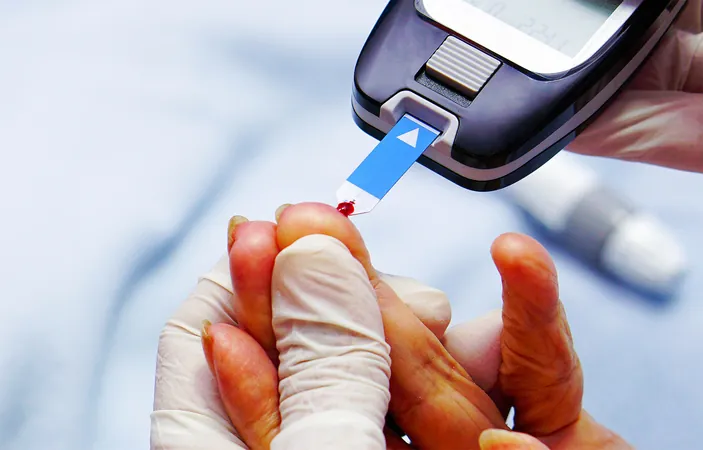
Breakthrough Study Links Inflammation to Motivation Problems in Schizophrenia
2025-05-19
Author: Mei
Revolutionary Findings from Emory University
A groundbreaking study from Emory University has unveiled a compelling biological connection between inflammation and motivational deficits in individuals diagnosed with schizophrenia, paving the way for innovative treatment options for symptoms that have baffled healthcare providers for years.
The Role of Inflammation in Motivational Challenges
Published in the esteemed journal Neuropsychopharmacology, this pivotal research discovered that elevated levels of C-reactive protein, a marker of inflammation produced by the liver, correlate with diminished activity in brain circuits that govern reward and motivation. Surprisingly, this inflammation does not tie into other schizophrenia symptoms such as hallucinations or delusions but directly impacts issues like securing employment, maintaining relationships, or excelling in academics.
Current Treatments Fall Short
These findings are a game-changer since existing antipsychotic medications do not effectively address these specific motivational deficits and can sometimes exacerbate them. Such deficits are linked to poor life outcomes for many patients, indicating a critical need for new treatment avenues.
A Focus on Key Brain Circuits
Researchers honed in on a vital brain circuit that includes the ventral striatum and the ventromedial prefrontal cortex. These areas have previously shown sensitivity to inflammation in depression studies, highlighting a persistent need for understanding the complex interplay between brain health and inflammatory markers.
Toward Targeted Treatments
Dr. David Goldsmith, an associate professor at Emory, emphasized, "This is the first study linking inflammation to brain changes in reward circuits and specific motivational symptoms in schizophrenia." The insights from this study may lead to targeted treatments aimed at alleviating symptoms by addressing inflammation, specifically for patients with high inflammatory markers and pronounced motivational challenges.
Exciting Experimental Trials Ahead
Building on these findings, Emory is launching an experimental trial testing the anti-inflammatory drug infliximab—commonly used for conditions like rheumatoid arthritis—on patients with schizophrenia who exhibit high inflammation and motivational deficits. This first-of-its-kind study aims to determine whether inflammation directly influences these debilitating symptoms.
A Call for Innovative Solutions
As Dr. Goldsmith states, there is an urgent need for new strategies to tackle the negative symptoms of schizophrenia, often seen as one of the greatest challenges in mental health treatment. This research could be a turning point in promoting recovery and improving lives—for those who struggle with the debilitating effects of this disorder.



 Brasil (PT)
Brasil (PT)
 Canada (EN)
Canada (EN)
 Chile (ES)
Chile (ES)
 Česko (CS)
Česko (CS)
 대한민국 (KO)
대한민국 (KO)
 España (ES)
España (ES)
 France (FR)
France (FR)
 Hong Kong (EN)
Hong Kong (EN)
 Italia (IT)
Italia (IT)
 日本 (JA)
日本 (JA)
 Magyarország (HU)
Magyarország (HU)
 Norge (NO)
Norge (NO)
 Polska (PL)
Polska (PL)
 Schweiz (DE)
Schweiz (DE)
 Singapore (EN)
Singapore (EN)
 Sverige (SV)
Sverige (SV)
 Suomi (FI)
Suomi (FI)
 Türkiye (TR)
Türkiye (TR)
 الإمارات العربية المتحدة (AR)
الإمارات العربية المتحدة (AR)